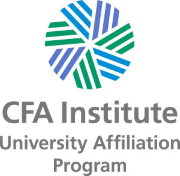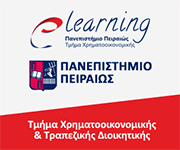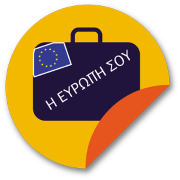Mergers and Acquisitions
Mergers and Acquisitions
ΧΡΘΜΑ 01
ECTS: 7.5
Course Type: Elective
Semester: Spring
Teaching Hours: 4
Prerequisites:
Course Scope
This course examines the activity of Mergers & Acquisitions (M&As) highlighting the importance of these corporate actions for the firms involved.
The students after the successful completion of the course should have developed knowledge of the :
• Types of corporate transformations (mergers, acquisitions, divestments) and the reasons/motives explaining the activity of M&As both domestically (in Greece) and at a global level.
• Various methods of finding the efficiency of M&As which are internationally applied by academic empirical research (e.g event studies –abnormal returns methodology, adjusted operational return, e.tc.) and the results of these studies with respect to the magnitude and their distribution of these returns among the
firms involved in the relevant deals, as well as their determinants.
• Various acquisition strategies and defence tactics by the firms involved in M&As deals.
• Various methods of companies’ valuation which are internationally applied in cases of M&As, with a special reference on financial firms’ valuation techniques and the peculiarities of the banking sector.
• Estimation and the importance of synergies’ creation for the added value of transactions.
• Various special issues on M&As related with the mode of payment (pure cash vs. pure exchange of shares), the International Financial Reporting Standard (I.F.R.S.) 3 and the existing legal framework in Greece.
Also, it is expected that students will attain basic skills with respect to :
– learning how to apply the event-study methodology in estimating the abnormal returns (by the use of regression analysis, other econometric models and the necessary tests of statistical significance), in order to examine the impact of the public announcement of events, such as M&As, on shareholders’ wealth
– reading of scientific articles published in high quality international academic journals which are the result of theoretical and empirical research, as well as research articles from high quality practitioners in relevant issues of successful M&As strategies
– reading and understanding of the valuation reports by well known international investment houses, aiming to get acquainted with such reports, so that the students should be able to write similar ones
– collection of primary data and information from companies and subsequent analysis in order to generate similar valuation reports for companies
Furthermore, it is expected that the students, in order to respond to the cognitive requirements of the course, should develop at an elementary level the abilities of: – empirical research
– strategic way of thinking
– team work
– time management and
– professionalism regarding their obligations (e.g. keeping deadlines, efficient completion of a project and presentation, e.tc.)
Course Outline
1. Introduction – Basic concepts, definitions and history of M&As
2. The motives for M&As (main theories)
3. The efficiency of M&As
4. Acquisition Strategies and Defence Tactics
5. Valuation of Target Companies
6. Means of payment for the transaction price
7. Accounting treatment of M&As (IFRS 3)
8. The Greek Legal framework of M&As
Suggested Reading
Basic recommended text book
Κυριαζής, Δ. (2016). «Συγχωνεύσεις και Εξαγορές», 2η έκδ., Αθήνα, Εκδόσεις ΔΙΠΛΟΓΡΑΦΙΑ.
Foreign basic bibliography
Damodaran, A. (2011). Applied Corporate Finance, 3nd edition, John Wiley & Sons.
De Pamphilis, D. (2014). Mergers, Acquisitions, and other Restructuring Activities. Elsevier Inc., 7th edition,
Sudarsanam, S. (2003). Creating Value from Mergers and Acquisitions : The Challenges. An Integrated and International Perspective. Prentice Hall, 2003.
Scientific articles
1. Alexandridis, G., N. Antypas and N.Travlos (2017). Value creation from M&As : New evidence, Journal of Corporate Finance, 45, 623-650.
2. Alexandridis, G., Petmezas, D. and Travlos, N. (2010). Gains from Mergers and Acquisitions Around the World: New Evidence. Financial Management, 39 (4) : 1671-1695.
3. Draper, P. and Paudyal, K. (2006). Acquisitions : Private versus public. European Financial Management, 12, 57-80.
4. Ghosh, A. (2001). Does operating performance really improve following corporate acquisitions? Journal of Corporate Finance, 7, 151–178.
5. Golubov, A., Petmezas, D. and Travlos, N. (2012). Empirical M&A research: A review of methods, evidence and managerial implications. In the
Handbook of Research Methods and Applications in Empirical Finance edited by Adrian Bell, Chris Brooks and Marcel Prokopczuk published by Edward Elgar.
6. Ηealy P., Palepu K. & Ruback R. (1992). Does Corporate Performance improve after mergers ? Journal of Financial Economics, 31 : 135-175.
7. Hoberg, G. and Phillips, G. (2010). Product Market Synergies and Competition in Mergers and Acquisitions: A Text-Based Analysis. Review of Financial Studies, 23 : 3773-3811.
8. Kyriazis, D. and Diacogiannis, G. (2008). The Determinants of Wealth Gains in Greek Takeover Bids. International Research Journal of Finance and Economics, 22 :162-177.
– Related academic journals:
Journal of Corporate Finance, Journal of Finance, Financial Management, European Financial Management, e.tc.
Διαδικτυακοί τόποι (Internet Sites) http://pages.stern.nyu.edu/~adamodar
http://www.mckinsey.com/business-functions/strategy-and-corporate-finance/ourinsights/




